"Let me get this straight. A thing that looks like a police box, standing in a junkyard, it can move anywhere in time and space?" - Ian Chesterton
On Nov. 23, 1963, the first part of An Unearthly Child aired. Thus begins one of the biggest sci-fi phenomenons ever - Doctor Who!
Now, I know I'm not the first person to do a retrospective on this show. But I've been wanting to go back and watch it from the beginning and share my thoughts on each episode.
I especially want to do this since this year will mark the beginning of a new Doctor - Jodie Whittaker!
Personally, I'm very excited about this new chapter. I look forward to seeing how Whittaker plays this mysterious and eccentric time traveler. I can't wait to see what kind of companions Tosin Cole, Mandip Gill, and Bradley Walsh will be. It'll also be interesting to see what direction Chris Chibnall takes the show as the new showrunner.
I am planning on sharing my thoughts about the new season when it comes around. I definitely won't be done with the retrospective when the new season premiers but I'll try to give my thoughts on both at the same time.
Each of these will include a quote from the episode, the plot synopsis from Tardis Wikia, and a rating out of 5.
But let's start with the VERY first season of the show.
The season ran from Nov. 23, 1963 to Sept. 12, 1964.
Producer - Verity Lambert
Story Editor - David Whitaker
When the teachers refuse to leave, they discover that an ordinary police box is actually bigger on the inside. The Doctor decides they know too much about his and Susan's otherworldly origins and takes them on a journey across space and time in his TARDIS, the place he and Susan now call home.
Everything you ever heard about this episode is true. The first episode is absolutely perfect. The build-up and mystery surrounding the Doctor and Susan is spot on. I can only imagine what it was like to be watching this when it first aired.
Now, a fair warning for those of you used to the Doctor being the happy kind with a few hints of anger, this one is not quite like that. He's definitely more grumpy to say the least. Now, he does get better as time goes on but I won't be surprised if some are turned off by his gruffer nature. A part of me wouldn't be surprised if some of you thought Ian was supposed to be the Doctor.
But I'm certain you will grow to like him.
Now, I'm about to repeat what a lot of others have said. The next three episodes are just average at best. It's mostly caveman politics involving fire. That's it.
But I do recommend this, at least for the very first episode. I'm more than certain you will grow to love Ian and Barbara. By the way, I've met William Russell who played Ian at ReGeneration Who this year and it was amazing.
I got to ask him about another project he was a part of - one of my favorite movies, The Great Escape (1963).
In the film, he played British POW Sorrell who was in charge of diversions during the escape planning. You can't miss him. He's the one with the pipe.
Another fun fact about Russell: his son Alfred Enoch played Dean Thomas in the Harry Potter films.
I've also met Waris Husein at L.I. Who in 2017. Splendid fellow.
So, yeah, in case you can't tell, this one is worth a watch - at least the first episode.
RATING: 3.5/5
It's a real shame all the episodes of this story are lost because just from the still shots I've seen, it looks like a lot of effort went into creating the amazing looking sets.
Now, I know I'm not the first person to do a retrospective on this show. But I've been wanting to go back and watch it from the beginning and share my thoughts on each episode.
I especially want to do this since this year will mark the beginning of a new Doctor - Jodie Whittaker!
Personally, I'm very excited about this new chapter. I look forward to seeing how Whittaker plays this mysterious and eccentric time traveler. I can't wait to see what kind of companions Tosin Cole, Mandip Gill, and Bradley Walsh will be. It'll also be interesting to see what direction Chris Chibnall takes the show as the new showrunner.
I am planning on sharing my thoughts about the new season when it comes around. I definitely won't be done with the retrospective when the new season premiers but I'll try to give my thoughts on both at the same time.
Each of these will include a quote from the episode, the plot synopsis from Tardis Wikia, and a rating out of 5.
But let's start with the VERY first season of the show.
The season ran from Nov. 23, 1963 to Sept. 12, 1964.
Producer - Verity Lambert
Story Editor - David Whitaker
AN UNEARTHLY CHILD
(four parts)
W: Anthony Coburn
D: Waris Husein
W: Anthony Coburn
D: Waris Husein
"Have you ever thought what it's like to be wanderers in the Fourth Dimension? Have you? To be exiles? Susan and I are cut off from our own planet - without friends or protection. But one day we shall get back. Yes, one day." - The Doctor
PLOT: Barbara Wright and Ian Chesterton, two humble teachers during 1963, are surprised by a bright student named Susan Foreman. Confused by the contradictions in Susan's knowledge, Barbara had decided to visit her home, only to learn that the address on record is a junkyard. She and Ian decide to wait at the location until Susan or her grandfather show up. There, they discover a junkyard inhabited by her grandfather, simply known as "the Doctor", and he doesn't want them lurking about.
When the teachers refuse to leave, they discover that an ordinary police box is actually bigger on the inside. The Doctor decides they know too much about his and Susan's otherworldly origins and takes them on a journey across space and time in his TARDIS, the place he and Susan now call home.
Everything you ever heard about this episode is true. The first episode is absolutely perfect. The build-up and mystery surrounding the Doctor and Susan is spot on. I can only imagine what it was like to be watching this when it first aired.
Now, a fair warning for those of you used to the Doctor being the happy kind with a few hints of anger, this one is not quite like that. He's definitely more grumpy to say the least. Now, he does get better as time goes on but I won't be surprised if some are turned off by his gruffer nature. A part of me wouldn't be surprised if some of you thought Ian was supposed to be the Doctor.
But I'm certain you will grow to like him.
Now, I'm about to repeat what a lot of others have said. The next three episodes are just average at best. It's mostly caveman politics involving fire. That's it.
But I do recommend this, at least for the very first episode. I'm more than certain you will grow to love Ian and Barbara. By the way, I've met William Russell who played Ian at ReGeneration Who this year and it was amazing.
I got to ask him about another project he was a part of - one of my favorite movies, The Great Escape (1963).
In the film, he played British POW Sorrell who was in charge of diversions during the escape planning. You can't miss him. He's the one with the pipe.
Another fun fact about Russell: his son Alfred Enoch played Dean Thomas in the Harry Potter films.
I've also met Waris Husein at L.I. Who in 2017. Splendid fellow.
So, yeah, in case you can't tell, this one is worth a watch - at least the first episode.
RATING: 3.5/5
The Daleks
(seven parts)
W: Terry Nation
D: Christopher Barry and Richard Martin
"We do not have to adapt to the environment. We will change the environment to suit us." - Dalek
PLOT: The TARDIS has brought the travelers to the planet Skaro where they meet two indigenous races — the Daleks, malicious mutant creatures encased in armored travel machines, and the Thals, beautiful humanoids with pacifist principles.
Now, we move on from one legendary episode to another! The Daleks! Yes, the famous Nazi-like mutant trashcans made their first appearance in the second story ever.
Much like the last story, the build-up is spot on. The Tardis crew discovering the desolate planet that was the victim or a terrible nuclear holocaust, but discover what seems to be a thriving city. In that city, they are captured by the infamous pepper pots. The first one captured is Barbara, leading to one of the best cliffhangers in the show's history.
Let me just address this real quick: Yes, this was the basis of the movie version Dr. Who and the Daleks (1965, dir. Gordon Flemyng) starring Peter Cushing (Grand Moff Tarkin in Star Wars). And no I will not be talking about it in this retrospective because it's not cannon.
The only massive fault I can find with the story is that there are parts that seem to drag a bit. Mainly in scenes where the Tardis crew and the Thals walk around trying to infiltrate the Dalek city. It's not entirely bad as it does give us some time to know and like these characters more but I think if you cut out or condensed these parts then it wouldn't have been a terrible loss.
RATING: 4/5
The Edge of Destruction
(two parts)
W: David Whittaker
D: Richard Martin and Frank Cox
"As we learn about each other, so we learn about ourselves." - The Doctor.
PLOT: As they slowly recover from the shock of being thrown to the TARDIS floor, the Doctor, Susan, Ian and Barbara all seem to be acting strangely. Unexplained events occur and suspicions are raised that an alien force may have entered the ship.
Now we go from a sprawling epic (at least for TV standards) to a small scale psychological tale. And it's because of the last's story sprawling epicness that made them cut down to this smaller story confined in the TARDIS.
This episode has gotten flack by some fans mainly because of the reveal of what caused the TARDIS to malfunction.
I'm split on how I feel about it. I dislike how almost contrived it seems. But on the other hand, it does add to the mythos of the show and is the start of a trend that basically continues to this day. That being that the TARDIS is a living being.
Yeah, the TARDIS caused it for whatever reason. See what I mean?
But the ending doesn't ruin it for me and I do still really like how the episode plays out.
RATING: 3.5/5
Marco Polo
(six parts/all missing)
W: John Lucarotti
D: Waris Hussein and John Crockett
"We're always in trouble! Isn't this extraordinary - it follows us everywhere!" - The Doctor
PLOT: Arriving in Central Asia in 1289, the Doctor and his companions join the caravan of the famous Venetian explorer Marco Polo as it makes its way from the snowy heights of the Pamir Plateau, across the treacherous Gobi Desert and through the heart of imperial Cathay.
With this story, we have two milestones. The first one - this is the first pure historical episode, as in there's no sci-fi elements outside of the Doctor, the companions, and the TARDIS. The second - this is the first lost episode.
What do I mean by lost? Well, the BBC had this "brilliant" policy back in the day where instead of preserving them for future generations, they destroyed them. Seriously.
The First and Second Doctor tenures were hit hard by this policy resulting in many of their episodes being lost for good.
But thankfully there is still a way to enjoy these episodes - through audio. Yes, the BBC has compiled audio recordings of the episodes and present them like a radio program. And in animation form but more on that later.
But enough about that, let's talk about this episode.
When I first listened to it, I got bored with it. I don't know if I was in a sour mood that day or it just didn't click that time, but listening to it a second time I really dig it.
It really does show that a purely historical story can be great. This isn't a story that is, "Oh the Doctor lands in a certain time period and there's a monster." No, the story has the Doctor and his companions be involved directly in a historical setting. I think we need more of that.
I should also point out that Mark Eden who plays Polo, does a fantastic job in this story.
Now, obviously, listening to a production that was originally made for a visual medium is tough to adjust to but once you get into it you'll do fine.
RATING: 4/5
The Keys of Marinus
(six parts)
W: Terry Nation
D: John Gorrie
"I don't believe that man was made to be controlled by machines. Machines can make laws, but they can not preserve justice. Only human beings can do that." - The Doctor.
PLOT: The TARDIS arrives on the planet Marinus on an island of glass surrounded by a sea of acid. The travelers are forced by the elderly Arbitan to retrieve four of the five operating keys to a machine called the Conscience of Marinus, of which he is the keeper. These have been hidden in different locations around the planet to prevent them falling into the hands of the evil Yartek and his Voord warriors, who plan to seize the machine and use its originally benevolent mind-influencing power for their own sinister purposes.
This is the first story that made me feel "meh" about it. When I first watched it years ago, I thought it was fun. But rewatching it now, it almost seems like they rushed it. Like, they forgot to write a complete story but instead through a bunch of stories together.
Now, the actual plot of it - the Doctor and companions traveling around finding keys of a mystical item - but there were times where I kind of forgot there were supposed to do that in the first place. I think that problem can be boiled this down the TARDIS crew being separated. I don't know it could be me.
This episode is notable for the BBC trying to make another nemesis like the Daleks. This comes in the form of the Voord and... there's really nothing that remarkable about them. They got funky looking heads and wear wetsuits.
Now, that being said, this episode does have good moments. There's an interesting courtroom scene where the Doctor has to defend Ian in a murder trial. There's another part where the crew's visual perception is messed - everyone except Barbara's.
All in all, it's a "meh" episode. Give a watch if you want, but you won't be sorry if you skip it.
RATING: 2.5/5
The Aztecs
(four parts)
W: John Lucarotti
D: John Crockett
"You can't rewrite history. Not one line!" - The Doctor.
PLOT: The arrival of the TARDIS in 15th century Mexico leads the crew to the doomed Aztec people, a mixture of high culture and brutal savagery. Matters are further complicated when Barbara is mistaken for a god and the Doctor becomes engaged to be married.
Now, we're talking! I LOVE this story. This is a purely historical story where not only the TARDIS crew getting involved in ancient Aztec times, but it brings up the recurring topic of interfering with history. AND NONE OF THE EPISODES ARE LOST!
With this we get the crew landing in Aztec times where Barbara is mistaken as a reincarnation of a God - not hard to believe actually - and she decides to take advantage of this by trying to make the Aztecs stop their practice of sacrificing people to please the gods.
One would think the Doctor would be all for this... not quite. Because it is a fixed point in Earth's history. Changing it could result in catastrophic means. This presents the moral conflict that pops up time and time again. I'm sure we'd all love to go back and time and fix the atrocities of history but then the question of what will happen in the future pops up. Of course, there's also the whole different timeline things and such... but that's a different topic.
I forgot to mention with Marco Polo, but when the show was produced they wanted to use as a way to teach kids about science and history. Just going off this episode, they seem to do a good job with it. Admittedly, I don't know a lot about the ancient Aztecs but it's still nice that this episode gave me a basis to go off of.
Also, Jacqueline Hill steals the show as she takes Barbara to the center stage. The conversations and conflicting feelings between her and the Doctor present some splendid writing and acting moments.
This is a brilliant episode.
RATING: 5/5
The Sensorites
(six parts)
W: Peter R. Newman
D: Mervyn Pinfield and Frank Cox
"Grandfather and I don't come from Earth. Oh, it's ages since we've seen our planet. It's quite like Earth, but at night the sky is a burned orange, and the leaves on the trees are bright silver." - Susan
PLOT: The Doctor, Ian, Barbara, and Susan arrive in the TARDIS on board a spaceship. Their initial concern is for the ship's human crew, who are suffering from telepathic interference from the Sensorites, but Susan communicates with the Sensorites and finds the aliens fear an attack by the humans and are just defending themselves.
Tedius. That's the best way to describe this six-parter. I found it dull and repetitive when I first watched it, and I feel the same way now.
The only things worth noting we get the first description of Gallifrey (which wasn't named yet), there are some good lines like this one from the beginning from the Doctor, "It all started out as a mild curiosity in the junkyard, and now it's turned out to be quite a great spirit of adventure," and the Sensorites would go on to the be the influence for the Ood.
I found myself turning into Tom Servo at one point when watching this.
That's about it. This is the first really big dud of the show, in my opinion. Not the worst episode but still nothing I'll rush back to watch.
RATING: 2/5
The Reign of Terror
(six parts/two parts missing)
W: Dennis Spooner
D: Henric Hirsch
"I can't decide whether you're a rogue, a halfwit or both!" - The Doctor
PLOT: The TARDIS materializes not far from Paris in 1794 — one of the bloodiest years following the French Revolution of 1789. The travelers become involved with an escape chain rescuing prisoners from the guillotine and get caught up in the machinations of an English undercover spy, James Stirling — alias Lemaitre, governor of the Conciergerie prison.
The season finale and we end on another historical. And it's probably the weakest of the three we had, but it's not bad.
The worst quality is that there are points where it feels a bit lagging in some areas. Like, you could've cut a scene out and it wouldn't have hurt the story at all. Main example: The Doctor gets taken arrested, forced to work on a change gang, and escapes shortly after.
But this is still a pretty solid episode that gives us a cool French Revolution espionage vibe.
This episode does have three notable things: 1. We see the Doctor and companions dress to fit the time period, the Doctor uses this to an advantage at one point. 2. The first time they did on-location shooting. 3. This is the first story that would animate the missing episodes for the home release.
BBC commissioned some artists to animate the missing episodes. Now, the way I experienced the story was the audio version so I can't judge the animated too much. Looks like fine to me though.
Overall, it's an okay story that's worth your time.
RATING: 3/5
OVERALL SEASON RATING:
3/5
The show is still clearly trying to find it's stepping and while there are slip-ups there are plenty of great classic moments that make it obvious why the show was a hit.
As I stated earlier, I'm sure some people will be turned off by Hartnell's gruffer almost anti-hero persona in the beginning. But I'm sure if you keep watching you'll see why so many love the old man.
For the companions, Ian and Barbara are absolutely fantastic as companions. I promise you'll love them. Susan can be a bit annoying sometimes with her screaming "Grandfather!" almost constantly, but she can be endearing and you do see her grow as a character in the latter half.
It's not a perfect season but its got a lot of gems that fans should see.
"Our lives are important — at least to us — and as we see, so we learn... Our destiny is in the stars, so let's go and search for it." - The Doctor (The Reign of Terror)
Thank you all for reading. If you've seen these episodes, share your thoughts on them.
Share the post and follow me on Twitter @DocJohn90
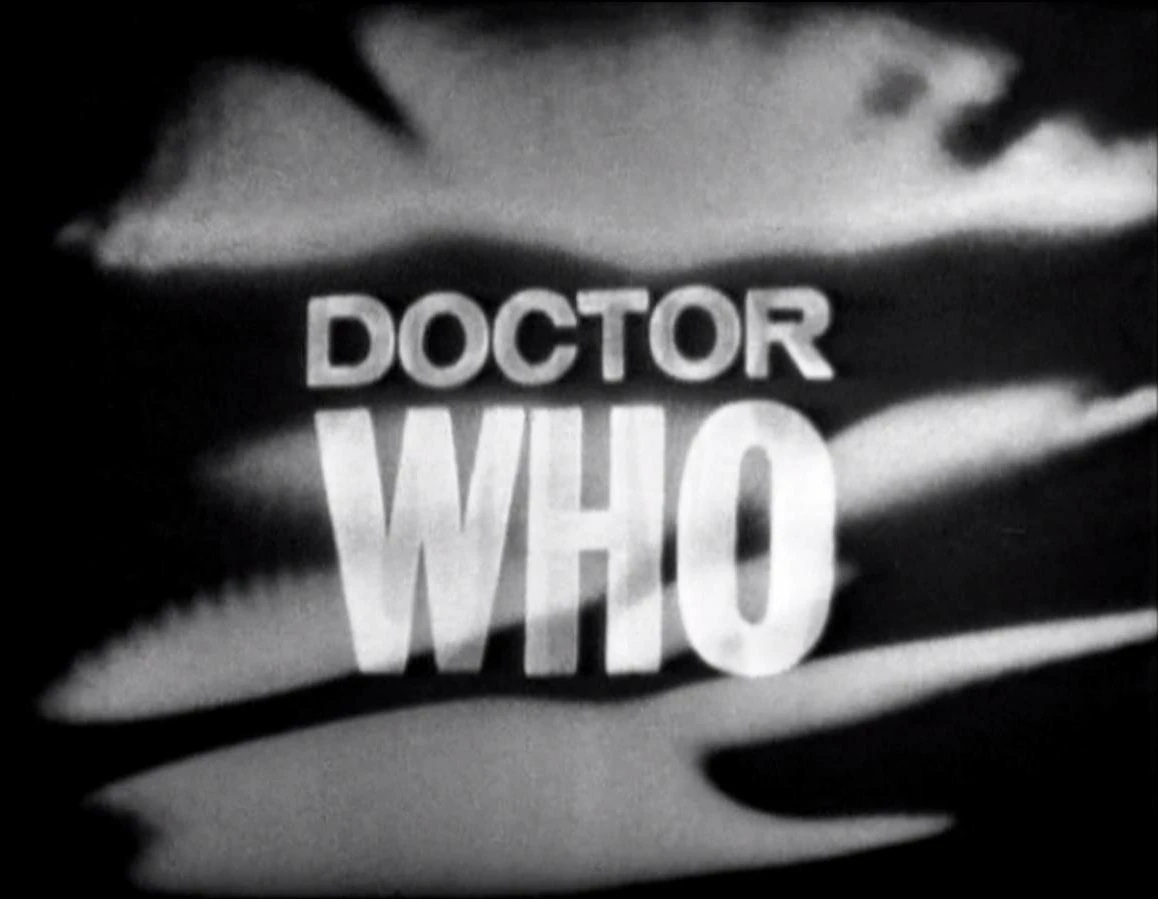
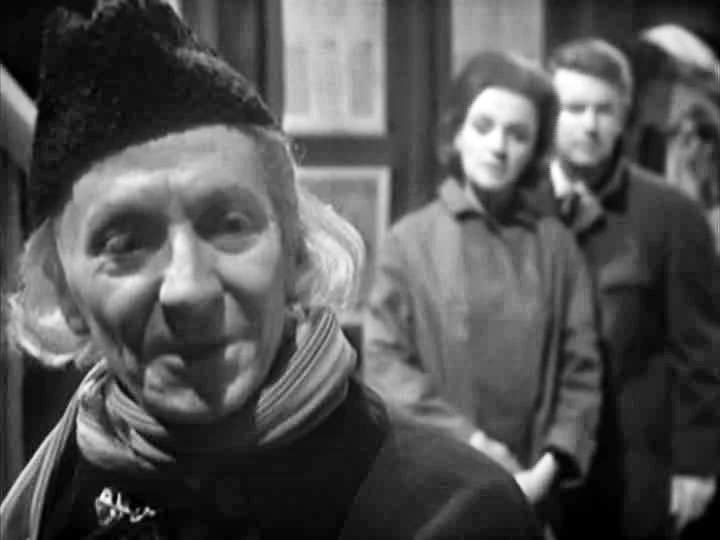

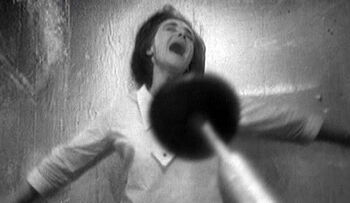
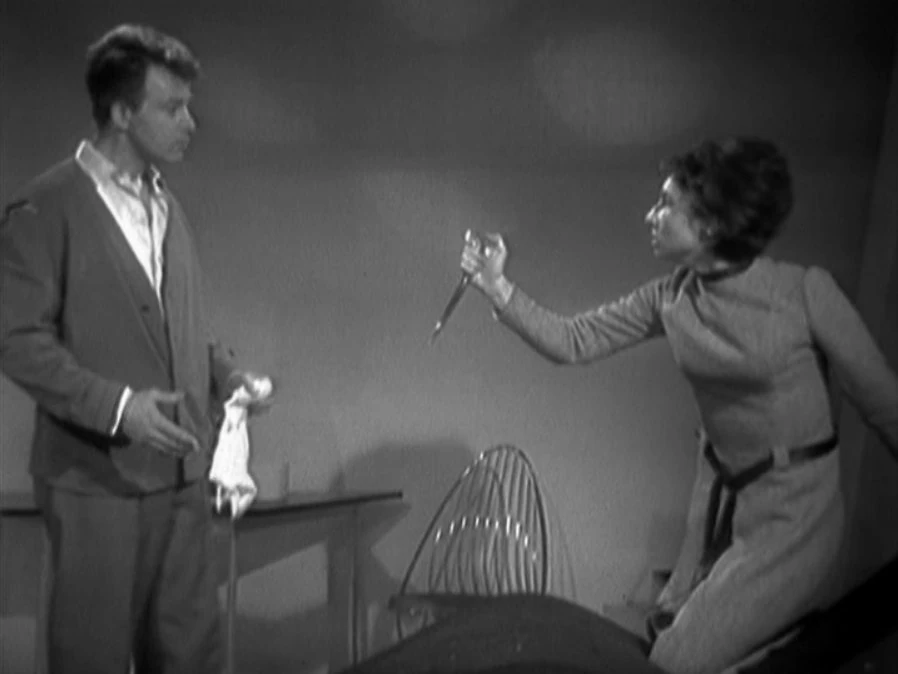

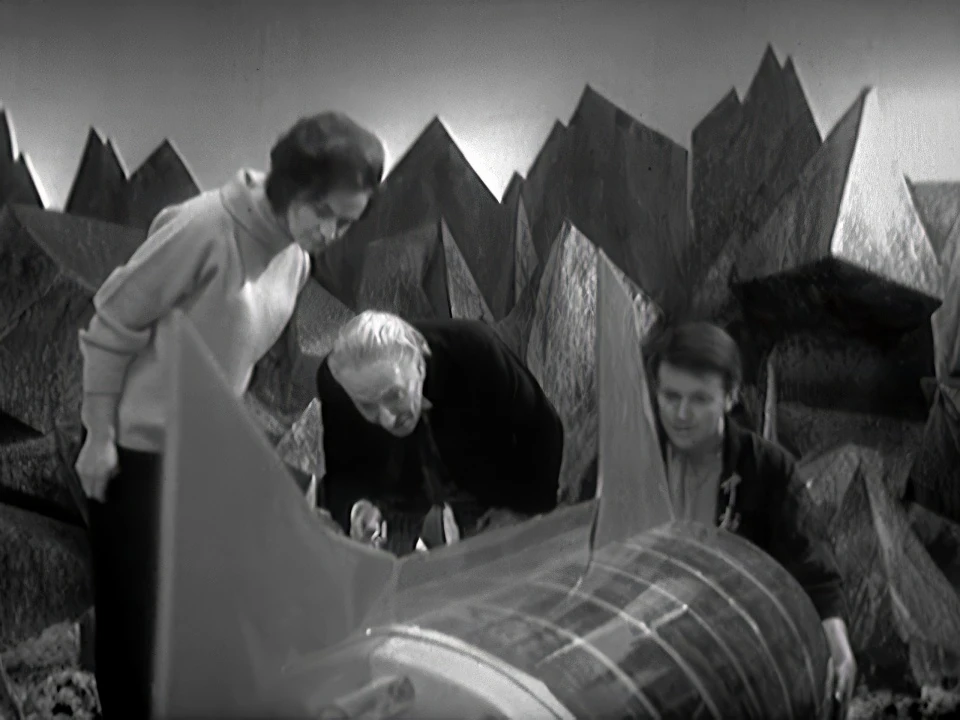
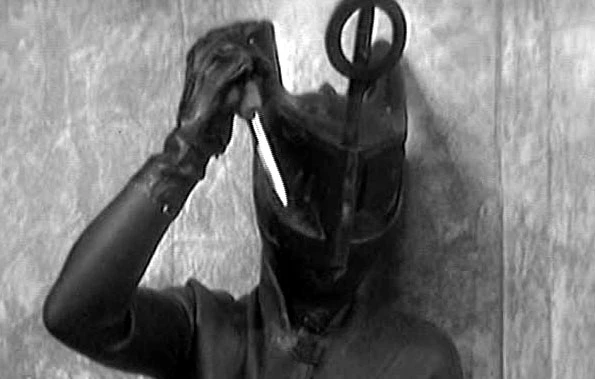
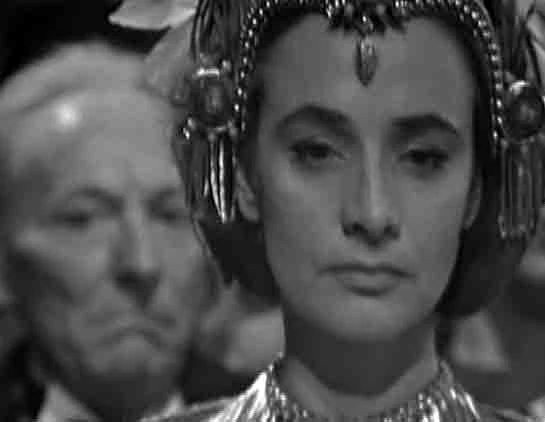
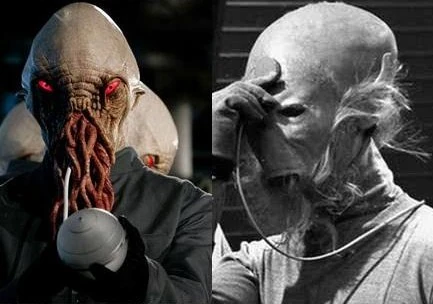
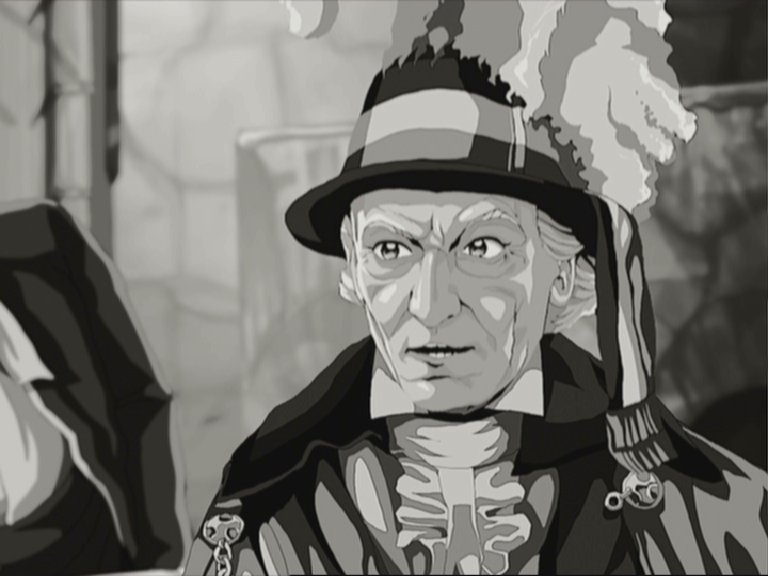




No comments:
Post a Comment